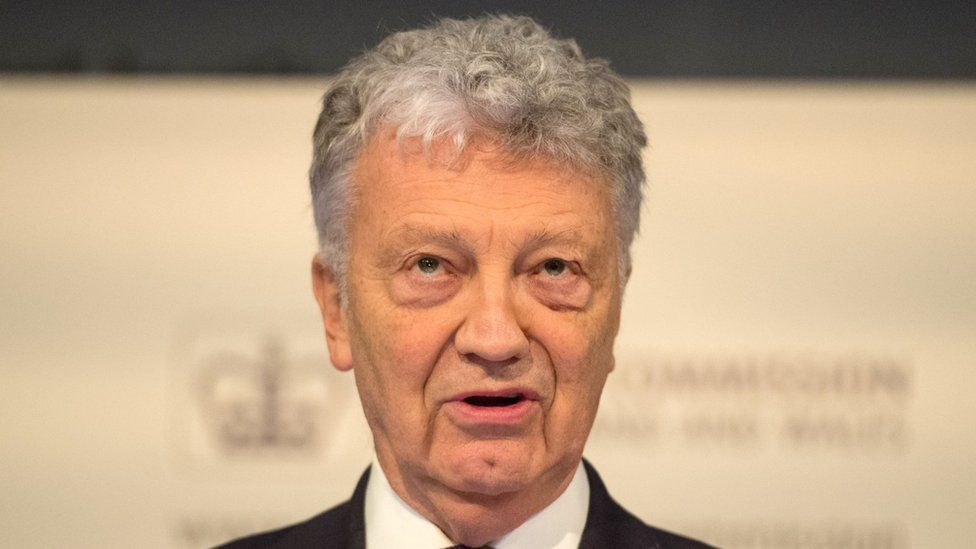ARTICLE AD BOX
 Image source, PA Media
Image source, PA Media
By Henry Zeffman
Chief political correspondent
The man who reviewed the government's counter-terror scheme last year says key recommendations he made have been ignored - leaving the public "at risk".
Sir William Shawcross suggested Prevent was failing to identify terrorist sympathisers and there was an increased risk in the UK due to the war in Gaza.
The Home Office said it had implemented almost all of Sir William's proposals, and would eventually enact them all.
Prevent is a key part of the UK's counter-terrorism strategy.
On Tuesday, ministers marked a year since the publication of his independent review by declaring that they had "brought Prevent back to its core mission".
"The whole counter-terrorism system needs to continually evolve and adapt to the ever-changing threat from terrorism," Home Secretary James Cleverly said in a progress report.
"Thanks to the work undertaken in response to [Sir William's] review, we have a first-class Prevent programme that can play a central role in this effort."
But Sir William - who was appointed to conduct his review when Boris Johnson was prime minister - said that the "glass is still only half full".
"The government has published a report saying that they have made some of those changes that I asked for, that I proposed - but not enough," he said, speaking to the BBC a day after the government's progress report.
Sir William added ministers had "ignored" some of his key recommendations - "and I think as a result the public is at risk".
He said he felt more worried about extremism in the UK after Hamas's 7 October attacks on Israel, and that the government - through Prevent - "should pay much more attention to the Hamas support network".
"There are unfortunately quite a lot of Hamas sympathisers and some operatives in this country," Sir William said, adding: "Prevent and the police should have been working much harder against those Hamas people in this country."
In practical terms, Prevent places public bodies, including schools and the police, under a legal duty to identify people who may turn to extremism, and intervene in their lives before it is too late.
However, Sir William found in his 2023 review that the scheme had repeatedly "failed" to identify attackers - and there was a "sense of lost purpose" in the scheme.
Speaking to the BBC on Wednesday, he continued: "The public are more at risk because of the events of 7 October and subsequently - and many, many people in this country are much more frightened than they have ever been before."
The Metropolitan Police has previously said that the "conflict in the Middle East continues to have a profound and polarising impact here in London".
When he was appointed to lead the review into Prevent, Sir William was criticised by a range of civil rights campaign groups, including some who accused him of having anti-Islamic views.
But crucially his review was always defended by the government, whose actions he is now questioning.
A Home Office spokesperson said the government had made "significant progress to deliver a strengthened Prevent".
"William Shawcross's Review was critical to ensuring Prevent is fit for purpose, which is why we accepted his recommendations in full," the spokesperson continued.
"One year on, we have delivered 30 of the 34 recommendations he made, and we are making rapid progress on delivering the remaining four.
"The government agrees that extreme Islamist ideology presents the greatest threat to the UK, and has moved swiftly to update Prevent duty guidance and training to make that clear."
Additional reporting by Sam Hancock

 10 months ago
45
10 months ago
45








 English (US) ·
English (US) ·